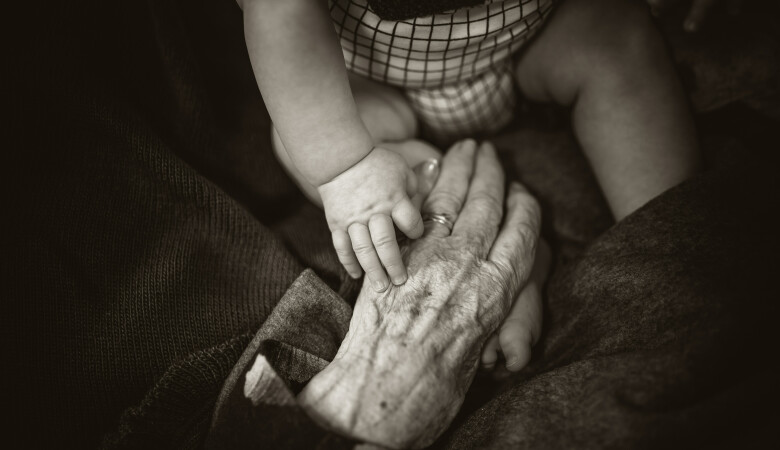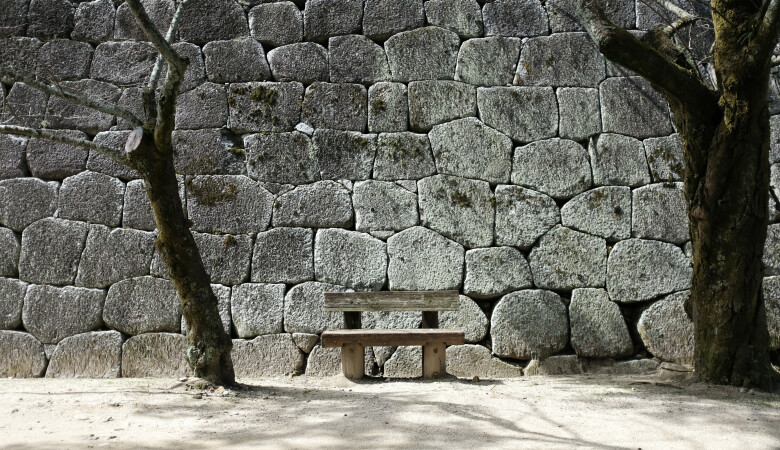Brotherly Love, Hospitality, and Compassion for the Persecuted (Hebrews Sermon 68 of 74)
June 10, 2012 | Andy Davis
Hebrews 13:1-3
Brotherly Love, Suffering
Ethics Rooted in Doctrine
As we come to Hebrews 13:1-3, we've turned a corner, and we are in the final stretch of the book of Hebrews and as many New Testament epistles, we see a series of practical applications of the doctrine that we've learned in 12 chapters now in Hebrews. We're being told simply put how we should live as a result of these things. And how beautiful is that the ethics of Christianity, the rights and wrongs of how we should walk and live as Christians, and how solid is the foundation under the feet of all of those commands. How beautiful is that? Not a mere ethical system of "Do this" and "do that." Think about Poor Richard's Almanack published by Ben Franklin in which we're being told a penny saved is a penny earned, a stitch in time saves nine, that kind of thing. Early to bed, early to rise makes a man healthy, wealthy and wise, all that kind of stuff.
But never asking why should we be healthy, wealthy and wise? What are we really here for in life? Why should I try to save nine stitches? I want to ask more questions about all this. Christianity doesn't suffer from that. The usual procedure in these New Testament epistles give us this beautiful doctrine of the Gospel. The doctrine of Christ crucified of all that it means of a Holy God and His perfect law and we as transgressors, as wretched sinners who have no claim on God, and who must have mercy and grace or we will be lost and God providing salvation for us in Jesus Christ. And how Christ the son of God, son of man died in our place, shedding his blood for our sins, rose again on the third day. And this Gospel message, this series of teachings about Jesus is the key to my salvation. That if I believe these things I will be forgiven, I am forgiven.
And I can now, because Christ is raised from the dead, has been raised from the dead, I can walk in newness of life. I can live a new life. And out of that flows the ethics, you see that in the book of Romans, you get 11 chapters of doctrine, weighty doctrine, and then five chapters of practical applications. You see it in Ephesians, three chapters of weighty doctrine and if then this is the situation, then how should we live up to the calling we have received? Three chapters of doctrinal application. Now we have it in Hebrews as well.
And we have these first three statements, "Keep on loving each other as brothers", speaking of brotherly love. And then the issue of hospitality, "Do not forget to entertain strangers for by so doing, some have entertained angels without knowing it." I bet you're eager for that one. Okay? We'll find out what that means or take a shot at it anyway. And then in 13:3, "Remember those in prison as if you were their fellow prisoners, and those who are mistreated as if you yourselves were suffering." So we see a flow from Chapter 12 into Chapter 13. Last week, we had very strongly emphasized that vertical dimension of our lives. God as a consuming fire, having spoken words to us through Jesus Christ, the one who speaks to us from Heaven, Christ. He descended from Heaven to speak the gospel to us.
And God having given us the gift of faith so that we can hear those heavenly words. We are therefore in the process of and some day will receive a kingdom that cannot be shaken. And therefore, we ought to be thankful. And if we are thankful, we will worship. Greek word can be serve. We will serve this God who is a consuming fire, with piety, with reverence, with awe. And so we go right from that into brotherly love. Do you see it? In 13:1. And so, Christianity teaches ethics in this way, because God has loved you like this, you should love one another. And many of the things in Chapter 13 are all about that horizontal relating that we have toward one another, right away in Verse One.
And so the vertical feeds the horizontal or to use a kind of an agricultural image Jesus is the vine and we are the branches. And as Jesus has done all of this to us, He is the conduit, the pipeline of the power and ability to love horizontally because Christ has loved us so we must love one another. That's how it works.
I. Brotherly Love
And so we have this beautiful ethical system that flows immediately in verse 1 into brotherly love. Brotherly love, keep on loving each other as brothers. Think about it, this morning as I was thinking in the pew, just coming up here. Psalm 16, I love Psalm 16, there's so much in there. That's the resurrection psalm. How the Lord did not let Christ see decay. Earlier in that psalm, it talks about... This one statement says, "As for the saints, the holy ones, who are in the land, they are the glorious ones in whom is all my delight." This is an amazing statement. David says, "I really love being with the people of God. I really enjoy being with the brothers and sisters in Christ."
Now, I can tell you that was not always so for me. If I can just give you a personal testimony about that. The brothers and sisters freaked me out frankly for a while. In my unregenerate days, they seemed weird. I went to one Campus Crusade for Christ meeting on Friday, and that was enough for me in my unregenerate state. And then, when Steve, the guy in my fraternity kept trying to lead me to Christ. "Hey, would you like to... " in effect, "go back and be with those people again?" that was an easy one for me. "No." I had no interest in fellowship with them. And then, when he invited me to the retreat at which I gave my life to Christ, one of the biggest deterring factors was that I would have to spend a whole weekend with these people. And they were just weird to me. The reality was that I was weird, I wasn't living like there was a God on His throne, who sent His son, who died for me. That was weird. And at that retreat that weekend, I became healthy for the first time in my life, I was saved, I was forgiven of my sins. And what God gave me, He gave me so much that weekend, so many blessings, and I'm still unpacking them all. I'm still unpacking the fullness and richness of that forgiveness every day to know I am forgiven. Every day. But one of the gifts that he gave me was all of you and even though I haven't met you yet and not just you, but a multitude from every tribe, and language, and people, and nation, most of them I won't meet in this life, but they are an eternal treasure for me and for you.
Now, we don't always even now feel that way, do we? Now, let's be honest. We don't always feel like the brothers and sisters, the saints in the land or the glorious ones in whom is all my delight. But we know that we are heading to a place where both we and they will be healed from what it is that causes us to hesitate. Our sin nature, our selfishness that causes us to fragment and pull back from each other, so we really don't love each other, we don't forgive each other and we really do sin against each other. Friends, that's all temporary. We're going to a place where that will never happen again. And we will delight in one another. And so, we're told here in 13:1. "Keep on loving each other as brothers" or "let brotherly love continue."
Now, the word for brotherly love is probably, I would say, one of the most famous Greek words. It's the word Philadelphia from which we get the city of brotherly love, and that's what it means. So let this brotherly love continue. What is this brotherly love, what do we mean by it? Well, we don't believe what those that are liberal in their theology that don't believe in the inerrancy or the perfection of God's word would say back a hundred plus years ago, the doctrine of the fatherhood of God, and the brotherhood of man. And what that means is we're all brothers with one another because we're all human.
Now, we as Christians know very well that we are all descended from one man, Adam. That God made the whole human race out of one man and his wife. And actually that happened twice because it happened with the flood too. We're all descended from Noah, as well. But we don't deny that, but that I don't think that's what this means. This is referring to the family of believers, in Jesus Christ, that we have a genuine love for fellow believers in Christ. And many verses speak of this wonderful family of faith. Think about in John Chapter 1 where it talks about Jesus, the word who became flesh. And it says He came to His own, His own people and His own did not receive Him, they didn't welcome him. But as many as did receive Him, to those who believed in His name, He gave the right to become children of God. Children who are not born in the natural way, they're not born by natural biological processes, but they're born by God, born of God.
So we, who have received Christ as God in the flesh, died for us, etcetera. We have been given the privilege of becoming adopted sons and daughters of the living God, but we're not the only ones that's all, we're in a big family. God's done a glorious work all over the world, and we're in this huge family.
Another time in Matthew Chapter 12, Jesus was ministering miracles, doing all kinds of things and the word got to Mary and to his brother. Jesus had half-brothers basically, same mother different father, Joseph. That Jesus was insane. And it seemed like Mary and his brothers at least in part, believed it because they came to take charge of Jesus. I think that's an interesting moment, don't you think? Coming to take charge of Jesus, how do you do that? And so, word came. "Your mother and brothers are outside looking for you." Jesus just went right on ministering and he said, "Who is my mother? Who are my brothers?" Pointing to his disciples He said, "Here are my mother and my brothers. For whoever does God’s will is my brother and sister and mother."
So there you have two definitions of this family that we're talking about here, as many as received Christ, to those who believe in His name, that's the family or as Jesus put it, anyone who does the will of His Father in Heaven, it's the same thing. 1 John 3, "See what kind of love the Father has given to us, that we should be called children of God; and so we are." Much of the Book of 1 John, is about the horizontal relating to the other brothers and sisters in Christ.
Just in the book we're studying here, Hebrews in 2:11 speaks of the incarnation, Jesus taking on human flesh, taking on a human body and the human nature, and says both the one who makes men holy, that's Jesus, and those who are made holy by Him, that's us, are of the same family, so he is "not ashamed to call them brothers," it says. And then in the very next chapter 3:1, it says "Therefore holy brothers, who share in the heavenly calling." So we've already been introduced to this concept in Hebrews. So by faith in the Son of God, we are all made partakers of the divine nature, we are adopted into a glorious family. Christ established it at his incarnation, he paid for it in blood at his crucifixion. And by his resurrection he showed the consummation of it, when we will receive that same resurrection body and be perfectly united in a vast family of God. And the Book of Revelation says it's a big number, big number. It's a multitude greater than anyone could count, from every tribe, and language, and people, and nation.
All of us dressed in white robes and having palm branches and celebrating our salvation in the same way. It's an awesome family of God. You are not alone, you may feel lonely, from time to time, but you are not alone in this world. And so, he settled every individual true believer in Christ into this vast family. And he commanded that we share all these things in common in Christ, and so he gave us a clear command, "A new command I give you, that you love one another as I have loved you, so you must love one another." Now, what's new about that is the "as I have loved you" part. Jesus, his incarnation, his servant heart toward people who came and interrupted his day and immediately would get up and go with Jairus or go with the Roman centurion or go with whoever... I mean Jesus was the most interruptible and yet effective person ever. Three years of perfect interpretability and he never failed to achieve his mission and what he had to do that day. That's amazing. But that's Jesus and his horizontal love and his commitment to others, he showed us how to love. But ultimately, dear friends, at the cross, I've showed you how to love one another.
"Greater love is this that no one has this, that a man lay down his life for his friends, and you are my friends…" And so there is that bond that we have. This is the command "that you love one another as I have loved you, so you must love one another." And he also gave in effect the world permission to judge us to see if we are genuine followers of Christ by this love. This is a genuine Christian church if we love one another. If outsiders come in, "by this will all men know that you are my disciples, if you love one another." So, if outsiders come in and observe in effect, the verse gives them permission to say Christian church or not, based on their experience of our love for each other.
John put it this way, 1 John 3:14. "We know that we have passed from death to life because we love our brothers. Anyone who does not love remains in death." It says another place you are deceiving yourself if you say you love God, but you hate your brother. Now, by His spirit, we're able to do this. We can't do this naturally, this is a supernatural work. And really, the problem is two fold, it's got to do with what others do that make themselves difficult to love and it's what's going on in our own heart that makes it difficult for us to love them. It's a two-way street. And so the new nature He's given us, that transformed nature that we have in Christ enables us to do this. And so also the power of the Spirit, the fruit of the Spirit is love.
And so by the Spirit, we can love one another. Now, the command here, is "Let brotherly love continue." It's already going on, we're talking about this morning, Andy, and Eric, and I. It's in Thessalonians. I think. You are loving the brothers, one another. Now we ask you and urge you to do it more and more. It's the same idea here. It's already begun, if it weren't, you wouldn't be a real Christian church, but you are a real Christian church, you are genuine followers of Christ, you are loving each other. But let it continue. Don't let it get derailed. And it must continue. It must continue to flourish and actually, must grow and increase. Many of us, especially those that are excited about church history, we look back with almost a spirit-filled nostalgia at what it was like in the first century, in Acts Chapter 2 and Acts Chapter 4, what that early local church was like.
At the end of... After Peter's incredible Pentecost sermon and there's this whole harvest of 3000. And they just come flowing into the church and then the life is described in Acts 2, "All the believers were together and had everything in common, selling their possessions and goods they gave to anyone as he had need. Every day they continued to meet together in the temple courts. They broke bread together in their homes and ate together with glad and sincere hearts, praising God and enjoying the favor of all the people and the Lord was adding to their number daily, those who were being saved." How about that guys? Does that sound good? FBC. Oh God, bring it.
Same thing in Chapter 4, we have the exact same idea. "All the believers were one in heart and mind, no one claimed that any of his possessions was his own, but they shared everything they had. With great power, the Apostles continued to testify to the resurrection of the Lord Jesus and much grace was upon them all. There were no needy persons among them for, from time to time, those who own lands or houses, sold them, brought the money from the sales and put it at the apostles' feet and was distributed to anyone as he had need." Even in this book, we have evidence of this kind of fruitful fellowship, this committed fellowship in Chapter 10. You could go back one page maybe in your Bible. 10:33-34 talked about the time of persecution, it was a time of persecution, and it said, "You stood side by side with those who are so treated. You sympathize with those in prison and joyfully accepted the confiscation of your property because you knew that you had better and lasting possessions." And we'll talk about this more in the third point of the sermon. But you loved each other and you cared about each other and sympathize and stood with each other. This supernatural brotherly love, must continue.
Now, why might it not continue? Well, it might not continue because the world, the flesh and the devil assaulted daily. It's like driving with the parking brake on, all of the time. I was in a vehicle recently and it was another vehicle one I'm not used to, and we were stopping at rest stops, and as I was making a long trip and I kept forgetting to take the parking brake off and having trouble accelerating and we weren't coasting well. It was actually my mother's car, and she said, "You need to take the parking brake... " It will happen again, and again. I think it's just that I'm not used to using the parking brake, and so I just would forget. But I think that's what it's like for us as we try to love each other. The parking brake is on, and the flesh holds us back and we're assaulted all the time by temptations, and worldliness, and all kinds of stuff that tells us to celebrate me and make us ourselves the number one thing. Materialism comes in and assault, and all of those things make brotherly love, a challenge.
But we're urged here, commanded here, to let it continue. So practically, what can we do about that here at this church? Well, first, just understand that this is a gift, a birthright of being born again. We get to do this, not we have to do this, we get to do this. Alternative is so horrible, it's what the world is doing, the factions and divisions, and fighting and fleshliness out there. We are given the gift of each other, deep, sweet fellowship. And I think I can say just in that 14 years I've been in this church, FBC is a far sweeter fellowship now than when I first got here. Just marking time not speaking of causality, but just as I've observed, just as the word of God is flourishing and moving and flowing in this church, fellowship is better and better and better.
But I know I can get better still and I yearn for that. I want us to love each other more and grow in devotion to one another. I want us to develop a kind of a spiritual eyesight in each other's lives materially, and spiritually, those two great eyesights. I want us to look at each other, materially, physically, and look for needs. I want us to see it and notice it. I'm up on the eyesight because in 1 John 3, it says, "If anyone has material possessions and sees his brother in need but has no pity on him, how can he say the love of God is in him?" Let's not love merely in words, but in actions and in truth. So it's an eyesight.
Think about the parable of the Good Samaritan and how this man is beaten and left for dead by the side of the road, bleeding by the side of the road and the priest comes by and Jesus makes it a point to say he saw him and passed by on the other side, and then Levi comes and he saw him. Look it up, read it again. I checked it this morning. He saw him and passed by on the other side. Jesus is very plain about this, but then the Good Samaritan comes and he sees him and goes over to help him.
So, it's noticing it's seeing the needs, the physical needs. And they're varied. It could be financial, it could be health issues, whatever is assaulting the life, the physical material life of our brothers and sisters in Christ should matter to us. How much more than the spiritual side? And again, there's a sight in 1 John, there's a sight. If anyone sees his brother commit a sin not leading to death, he should pray for him. Again, you have to see what's going on and know what's happening. Hebrews has given us this already in Hebrews 3, 12, and 13. "See to it brothers that none of you has a sinful, unbelieving heart that turns away from the living God. But encourage one another daily as long as it is called today, so that none of you may be hardened by sin's deceitfulness."
You have to develop a close relationship with people to be able to say, "Hey, I think you're being hardened by sin's deceitfulness right now." But I just want you to develop spiritual eyesight for the material needs of your brothers and sisters and their spiritual needs, brothers and sisters and minister to them. So let's serve one another. Let's use home fellowships. I know we're in a break in the summer, but the elders, I know at least in part intent that some of the freed up time be for hospitality and other ways that we can get to know each other and build each other up. But home fellowships are a big part of how we can love one another. Charles Nevin talks about the Ministry of the Pew. And what that means is just make wherever you sit, on Sunday morning, just a center of ministry. It's like, "Well, how do you do that?"
Just by being alert, by being aware. Look around. Look around at who's with you, who's near you, walk over and talk to people, minister to them especially, I'm going to talk about this in just a moment, but draw in the outsider, the stranger, draw them in. Somebody that's a little quieter, it may be a member of the church, maybe for years, a little bit quieter, maybe not so socially outgoing. Draw them in. There's just that loving. The Deacon Benevolence Fund, be generous. There are material needs in this church, and that's our version of selling possessions and goods and putting at the apostles' feet, distribute it to anyone as he had need. Many of those that have material needs don't want you to know that they have material needs.
And so they come quietly to the leadership of the church, and ask if there's some ways that we can help. And the Deacon Benevolence Fund is how we help. So we do that whenever we have the Lord's Supper. I'm probably going out on a limb here, but probably not. You could do it when we're not having Lord's Supper. If you write on the check, Deacon Benevolence Fund, it'll get there. So you could do it any time. But those kind of ministries you know, we just recently had two babies. The Meal Baby Ministry that the ladies in the church organize is huge and it's not just for babies, but sometimes for major surgeries. I know when Christy was recovering, just to deliver my family from my cooking. I can follow a recipe, but you know. It is good, it was just a blessing and just the freedom of having that. But it's more than just a meal, you know that there's love behind it. There's love behind it and then there's a challenge of getting the dishes back to everyone, the appropriate dishes, that they get all their dishes back. But the joy that that draws us together, there's more I could say but I want to keep going.
II. Hospitality
Secondly, hospitality. By the way, the image I have of Hebrews 13 is... Do you ever go to Applebee's and have the appetizer sampler as a dinner? Maybe you've never done that. I like doing that. I just have the various appetizer sampler things. Do a little hamburgers and a little mozzarella sticks and then whatever the third thing, the buffalo wings. You see, you do that. Yeah, and that's dinner. Or maybe you just do that and then get dinner. I won't ask at any rate. But yeah, we can't fully develop any of these things. This would be 17, 18, 19 sermons. So that's just a little sampler, quick hitters of Christian ethics. Does that makes sense? The second one is the issue of hospitality. "Do not forget to entertain strangers for by so doing, some have entertained angels without knowing it." He urges them not to forget to do it.
This is love for strangers is that the common translation is just the issue of hospitality, expressing hospitality. So the stranger may not necessarily be a stranger to you but an outsider let's say from your family, so it could involve, even a brother, sister in Christ, but who's not a family member, that's hospitality. You're drawing them into your family circle, or it could be us as a church drawing in those who are parts of the body of Christ, believers in Jesus but not part of our fellowship. Drawing them in, they're outsiders to us, we might not even know them but they're brothers and sisters in Christ.
And then I think thirdly, it even involves those who are outside of Christ himself. So those would be strangers who come into our worship service, who aren't believers. Or those just in life, those that are not yet part of our fellowship. But specifically because of the hospitality picture, you may have the image of 1 Corinthians 14, an outsider coming into your worship service and no one knows them. And it says, "Do not forget to show hospitality or entertain strangers." Literally to love the stranger here. Easy to forget it because it's burdensome, it causes you to get up out of yourself. You got to use those commodities time, energy, money, that are so precious and the flesh hoards to be generous and give of yourself to the outsider, and that makes it a challenge.
And so, the strangers the Lord wants us to entertain are I think in those concentric circles. Our own church members into our own families, our homes. And secondly, Christians who are not part of our local church when they come to town. So you get this in 3 John 5-8, where it talked about traveling, really traveling Evangelists or missionaries. They go from place to place and they went out receiving no help from the Pagans and it was the job of the church to show them hospitality and send them off in a manner worthy of the Lord. So give them a place to stay, give them a base of operations. 3 John 5-8.
And so that's that kind of thing. So practically, for us at FBC it's a matter of ministering to missionaries that are on furlough or other Christian workers who are in the community and showing them hospitality, bringing them in, either having them stay at our homes or making sure that all of their needs are met, those kinds of things is in view here. Jesus says very strongly in this. "I was hungry and you gave me something to eat, I was thirsty and you gave me something to drink. I was a stranger and you invited me in." So let's go back to the Ministry of the Pew. It's Sunday morning, service is over. You just look around, you just know in your mind you're going to budget an extra 20 minutes here at the church, or longer to practice hospitality. You're going to reach out to someone you don't know. Somebody outside of your circle and you're going to draw them into your life. Maybe you're going out to lunch with a few people here from FBC, you're going to bring them with you. And maybe they're lost, they don't know Jesus, and you're going to bring them in and you're going to welcome them into your heart, and into your life. You're going to draw them in.
Entertaining Angels?
Now, what is this reference to angels? Well, I think simply, biblically in my opinion, I think the home base of this is Genesis 18 when you remember, Abraham was sitting there in the tent in the heat of the day and three strangers come to him and he jumps up and does what I think he would have done in any situation. I don't think this was new. He was hospitable, and so he and Sarah and their household provided a really lavish meal for these strangers, cared for them. But it turned out it was the I think the angel of the Lord who is the one who reveals that a year from that time, Sarah will hold a child in her arms. That was when she overheard and laughed in the tent.
And then the other two seem to be angels too, the very ones that go down to Lot in Gomorrah, to rescue him and get him out. And so I think that's the home base of this statement. Now, angels we've already been introduced to in Chapter one in Hebrews 1 are ministering spirits sent to serve those who inherit salvation. They're spirits, they're not physical, but they can at least it seems in this case, pull it off enough to appear to be normal people. You remember at the time of the resurrection, when Mary was there and there were two young men dressed in white, you remember that? And she thought they were just workers there in the garden, and she was asking where they had put the Lord, the dead body of Jesus. And so angels can take on that appearance. Other times like in Daniel Chapter 10, that angel comes to Daniel so glorious and so overpowering that Daniel is on his face, breathless and is unable to do anything. Just radiant with glory. His appearance is like lightning, his face like the sun and all that, that's an angel.
So they can do all of that. So now you're thinking, "Alright, is this a regular occurrence?" I have no idea. I know it's at least possible here. I don't think it's common. I'm not going to go all Frank Peretti here and we're going to see an angel behind every bush or every encounter. If you don't know who he is, get the books and read them. You will never be the same again. But I'm not saying that, but the point here, it's an interesting motivation. We don't always know what heaven's doing. You're not always aware of what's going on in the spiritual realm and so be hospitable.
And so for us as elders, we think this is a major point of application, starting with the elders. It's part of the requirement of being an elder, that you be hospitable. It's in both 1 Timothy 3 and Titus 1. And it makes sense, the more you think about it. So much of Christian discipleship is not merely taught, but also caught. I would say everything that's caught is also taught. I don't think there's anything you catch that there aren't words about, but there are just some things like Be completely humble and gentle, be patient, bearing with one another in love. It's good to have the words and then see how someone does it.
And also he's told, the elders told in 1 Timothy 3, that he must manage his family well. Be husband of one wife so there's a focus on the family life. And so there's just so many aspects or elements of family life that you just catch. You can see the way the man carries himself with his wife. Is he a Christ-like Ephesians 5 tender, loving head to his wife or not. And so the idea is that he must be, he should be and therefore he can put that on display. So hospitality is going to be big for the elders, but I would just urge that it's a church-wide practice that we be generous, that we open our homes and that we practice hospitality and that we entertain strangers. It's vital in the Christian life. I think home fellowships, again, is a big part of this. I just want to take a minute and thank those of you that practice hospitality as the backbone of our Home Fellowship Ministry. It's a huge undertaking and I know it's a challenge and you folks bear it well. It says in 1 Peter 4, offer hospitality without grumbling. Okay?
I want you all to know that this is, it's a challenge to have you here, but we're happy to do it. Yeah, I'm seeing that happiness, feeling that happiness right there. Look, we have received nothing but sweet, generous, lavish hospitality all of the home fellowships we've been to. And I just want to say thank you to those of you that have done that for us again and again, but it's foundation, willingness to do it. So I think it's vital. And I just want to urge that our church like through the Host Ministry, they do a great job of initial welcoming. You want to be part of that, be part of that. So there was a time that you could come in certain doors of this building, there was no one there. I actually had some people wonder if we were having church today. Well, we are. But it was just a spur to us to get something like what we have now, the Host Ministry, going. And it's been beautiful to see it develop, and you may have a heart for that. But you don't have to join that ministry to just be aware of strangers here on Sunday mornings.
III. Remember the Suffering
And then finally it says, "Remember those in prison as if you were their fellow prisoner." Prisoners, and those who are mistreated as if you yourselves were suffering. Well, again, like the previous verse, the idea here is one of remembering. That we would remember people who are in prison. It's so easy to forget people who are going through suffering that you're not going through. I think that's the pressure of this verse. It's easy to forget people who are suffering in ways you're not suffering. And for you to say "at least it's not me" is wrong, it's not a Christian.
And so the focus here is on prison. And I think first and foremost the home base of this verse are those Christians who are incarcerated for their faith. I think that's the home base of this because earlier in Chapter 10, it says as we mentioned earlier, "Remember those earlier days after you'd received the light, when you stood your ground in a great contest in the face of suffering, sometimes you were publicly exposed to insult and persecution and at other times you stood side by side with those who are so treated." Listen to this: "You sympathize with those in prison and joyfully accepted the confiscation of your property because you knew that you yourselves had better and lasting possessions."
So what it meant, and I mentioned it at the time, I think that the magistrates of a city, let's say back in those days, the Roman era, if they were against Christianity and wanted to crush it but they didn't know who the Christians were, they would smoke out the Christians by incarcerating some of them as bait to draw out other Christians who had come feed them because they wouldn't feed the prisoners or care for their medical needs. And so the author here is saying, please don't forget the brothers and sisters that have been arrested and act as though it had happened to you. Golden rule: Do to them what you would have them do to you, if the situation were reversed. I think that's what he's saying here. And so remember them, be faithful to them, pray for them, and meet their physical needs. Like the Philippian jailer did after he was converted. First thing he did was he washed the wounds of Paul and Silas then was baptized and then set a meal in front of them.
Just practically cared for their needs. So the author then want faith encouraged to show genuine Christian love and compassion for those who are in prison. Well, how does that relate to prison ministry in general? I think it could, it very well could. We could look at this verse and say, this isn't just talking about remembering the persecuted, but also just prison ministry in general. I know Chuck Colson and looked to this verse a lot for Prison Fellowship. And so the idea there is that there's some elect people in prison who haven't been brought to faith yet. Let's go lead them to Christ, and then we'll have brother and sisters in prison. And then we'll have to minister them, and delight to minister and then we do Bible studies and all that. I asked Jack Evans, who's been leading our prison ministry. I said, what year did you start? And he said 1975. Can you believe that? 37 years. And he readily assented, and I asked him, and I didn't need to ask, I know his heart, "to God be the glory, right brother?" He said, "Amen." Every week without a fail, 52 weeks a year, 37 years.
Just set Cal Ripken Junior aside, let's just go to prison ministry, alright? That's an incredible streak of faithfulness, and it hasn't been Jack every time. It's a ministry of people that have done that. And so I think it's an awesome ministry that we can have. Recently, I've been convicted on this theme from Romans 15, 30, and 31. I just want to read it to you. You don't have to flip there. But there it says this, Paul is about to go to Jerusalem, he knows in Jerusalem there are people who hate him, and want to kill him. So he says to the church at Rome, "I'm going to bring money to the saints in Jerusalem." This is what he says, "I urge you brothers, by our Lord Jesus Christ and by the love of the Spirit, to join me in my struggle by praying to God for me."
That is very convicting for me. Because at that moment, I realized I was very much like the priest and the Levi walking by so many situations that I didn't care about, because they weren't happening to me. And so I said, alright, clearly what Paul is wanting here is prayer. So by praying for persecuted Christians, you are remembering them. There's more you can do, but let's just start there. Learn about the persecuted church, those who are incarcerated for their faith, those who are in jail right now as though you were their fellow prisoners. House Church pastors in China, Christians in Muslim lands, Christians in Iran we prayed for. Pray for them as though you were a prisoner. Feel like what it would be like to not have the freedom, all the plans you have this afternoon, you don't, you're in prison, you're going anywhere. Feel that and pray for them.
Don't be the priest and the Levites, saying in effect, "Better you than me. There's nothing to do with me." And you just walk by, through prayerlessness. Does that make sense? So secondly, Paul was a church planting trail blazing missionary. He's in a struggle to plant churches. I realized I need to keep active and praying for missions and unreached people group missions in particular, and those who have gone out, pray as though I were their fellow missionaries, I were going through that same struggle as well.
So, I just urge you, every day to go to Voice of the Martyrs and find out something to pray for today, and go to JoshuaProject.net and find some unreached people group or take on one of our missionary units that's reaching unreached people group and pray for them every day as if you were in their struggle with them. And it may be that God has a particular ministry that he has in mind for you, prison ministry, something like that. God may be using this text to call you to there. Let's close in prayer.






























